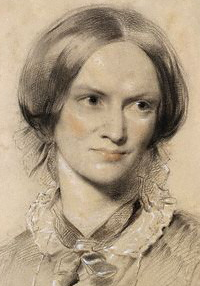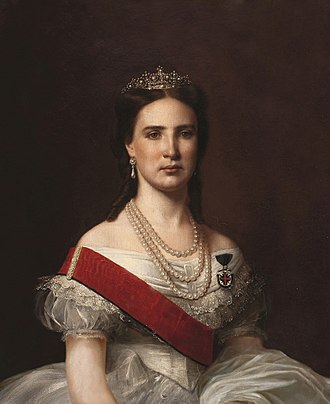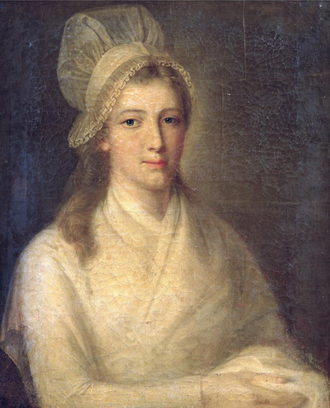Discover Your Roots
SIGN UPDiscover Your Roots
SIGN UPCharlotte is a timeless and elegant female name of French origin, meaning "Free." It is a feminine form of the male name Charles and has been popular since at least the 14th century. The name has various related forms such as Charlie, Lottie, Lotte, Chara, Karlotta, Carlota, and Carlotta. In 2013, Charlotte was the 31st most popular girl's name in the United States and the most popular name for girls in Australia. It has been a constant presence among the top ten girls' names in England and Wales since the 1980s. Notable figures with the name include Empress Charlotte of Belgium, Princess Charlotte of Wales, and author Charlotte Brontë. In addition, Charlotte is also associated with fictional characters from various works, such as "Charlotte's Web" and "Sex and the City."

Charlotte Frances Riley, born on December 29, 1981, is a renowned English actress, recognized for her compelling performances in various film and television productions. She gained prominence for her portrayal of Sarah Hurst in "Easy Virtue" (2008) and Catherine Earnshaw in ITV's adaptation of "Wuthering Heights" (2009). Riley's journey in the entertainment industry began with her upbringing in Grindon, County Durham, and her education at Teesside High School, St Cuthbert's Society in Durham, and the London Academy of Music and Dramatic Art. Her career highlights include winning the Sunday Times' Playwriting Award for "Shaking Cecilia," appearing in "Edge of Tomorrow" alongside Tom Cruise and Emily Blunt, and starring in the BBC drama "Press." Additionally, she played a significant role in the BBC mini-series "A Christmas Carol" and appeared in the Amazon Prime Video series "The Peripheral." In her personal life, Riley is married to actor Tom Hardy, with whom she shares two children. Her notable filmography and contributions to the entertainment industry continue to captivate audiences worldwide.

Charlotte Brontë, born on April 21, 1816, was an English novelist and poet, best known for her classic novel "Jane Eyre." She was the eldest of the three Brontë sisters who survived into adulthood and became celebrated in London literary circles. Born in Thornton, West Yorkshire, Brontë's early life was marked by tragedy, including the deaths of her mother and two elder sisters. These experiences influenced her writing, notably depicted in the novel "Jane Eyre." Despite facing rejection for her first novel, "The Professor," Brontë achieved success with "Jane Eyre," published under the pseudonym Currer Bell. Alongside her siblings, she created a shared imaginary world, which served as a catalyst for their literary vocations. Brontë's literary contributions continue to be revered, solidifying her legacy as a prominent figure in English literature. Tragically, she passed away on March 31, 1855, shortly after her marriage, likely due to complications from pregnancy. Charlotte Brontë's enduring impact on literature and her compelling life story continue to captivate readers and scholars alike.

Charlotte Maria Church, born on February 21, 1986, is a Welsh singer-songwriter, actress, and television presenter from Cardiff. She gained fame as a popular classical singer during her childhood and later ventured into pop music. With over ten million records sold worldwide, Church hosted The Charlotte Church Show and released her first album in five years, titled Back to Scratch, in 2010. Aside from her music career, Church is known for her political activism, supporting Jeremy Corbyn, Plaid Cymru, and the cause of Welsh independence. Born as Charlotte Maria Reed in Llandaff, Cardiff, she was raised by her mother and stepfather and showed her musical talent at a young age. Church's classical career included successful albums like Voice of an Angel, while her pop career saw hits such as "Crazy Chick" and "Call My Name." Church also ventured into acting, making her film debut in A Beautiful Mind. Embracing her political voice and maintaining her musical presence, Charlotte Maria Church continues to inspire and entertain audiences worldwide.

Charlotte of Belgium, also known as Marie Charlotte Amélie Augustine Victoire Clémentine Léopoldine, was a princess of Belgium and a member of the House of Wettin in the branch of Saxe-Coburg and Gotha. Born on June 7, 1840, she was the daughter of King Leopold I of Belgium and Louise of Orléans. Through her marriage to Archduke Maximilian of Austria, she became Empress of Mexico. Charlotte had a complex and tumultuous life, marked by her involvement in the political affairs of Europe and Mexico.Her marriage to Maximilian led them to Mexico City, where she ruled as regent during his absences, making her the first woman to rule in the Americas. However, their reign was short-lived, and Charlotte faced numerous challenges, including the withdrawal of French military aid and the subsequent deposition and execution of Maximilian. This series of events took a toll on her mental health, leading to her confinement in various locations in Belgium.Charlotte's upbringing was influenced by her royal connections, having close ties to European royalty, including her cousin, Queen Victoria of the United Kingdom. Despite the challenges she faced, Charlotte's life and legacy continue to be a subject of speculation and intrigue.Throughout her life, Charlotte navigated the complexities of royal politics and faced personal hardships, leaving behind a legacy that has sparked curiosity and fascination. Her story is a testament to the challenges faced by royal figures and the

Charlotte Corday, born Marie-Anne Charlotte de Corday d'Armont, was a prominent figure in the French Revolution. She gained notoriety for assassinating Jean-Paul Marat, a leading Jacobin figure, on 13 July 1793. Corday, aligned with the moderate Girondins, held Marat responsible for the September Massacres of 1792 and believed that his radical approach endangered the Revolution. Consequently, she took it upon herself to eliminate Marat, viewing it as a means to prevent further violence and turmoil. Corday's act of violence, which resulted in Marat's death, was captured in the famous painting, "The Death of Marat" by Jacques-Louis David. Shortly after the assassination, Corday was arrested, found guilty by the Revolutionary Tribunal, and subsequently executed.Born in Normandy, Corday hailed from a minor aristocratic family and was known for her strong political convictions and admiration for the Girondins' moderate approach to the Revolution. Her decision to eliminate Marat was driven by her belief that his demise would quell the ongoing violence and upheaval in France. Corday's assassination of Marat and the subsequent events have been widely documented and remain a significant chapter in the history of the French Revolution.
All images displayed on this page are sourced from Wikipedia or Wikimedia Commons.We use these images under their respective Creative Commons or public domain licenses. Wherever applicable, author attributions and license information are provided. If you believe an image is used incorrectly or outside its license terms, please contact us so that we can review and correct the issue.